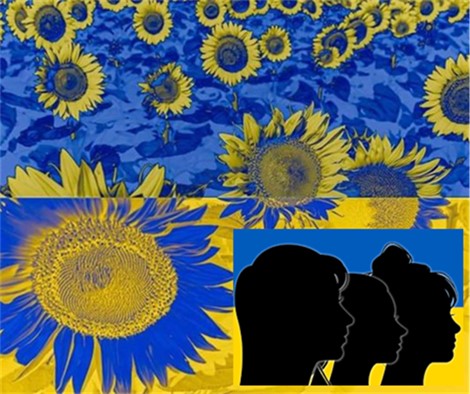
Diasporic Postcards: MOTHERS
As my soul crumbles at the sight of images from Kyiv and Kharkiv with train platforms bursting with women and children, I cannot help but be reminded of my mother’s exodus story from Ukraine. When Germany invaded Ukraine, families had to ‘volunteer’ one member to work in Germany and my grandparents were commanded to give over their daughter. My grandmother was inconsolable, while my grandfather had hopes my mother might be spared the horrors of conflict in Ukraine.
My grandmother filled a flower-patterned babushka with a few scraps of food and tied up the ends and watched as my grandfather and mother trotted away in a horse-drawn wagon to a rendezvous point in a distant town. I’m sure he looked in terror as my mother, just barely having turned 14, was herded onto a train so tightly packed there was no room to slide down to sit. And how could they have known that, as the trains encountered tracks damaged by bombing, the voyage would take more than a month. The girls ate (until the food ran out), performed bodily functions, and even slept upright. Some girls were transitioning into womanhood, experiencing their first flow of blood with no means to control it.
A few times en route the train stopped, ‘unloaded the cargo,’ and everyone was hosed down. Soaking wet, they scurried back onto the train. At the final destination, my mother was transported to a depot where she was displayed like chattel for the selection process by the ‘employers.’
As I see the current images from Ukraine, I wonder if the fleeing women and children will return, whether they will be reunited with their husbands, fathers, brothers, and sons left behind. My grandparents had been assured my mother would return in a matter of months. They had no way of knowing my mother would spend the duration of the war in Germany, that she would never see them again, never hear them laugh again, never hold them again. Nor did they know they would never meet me, their granddaughter, a descendent of misery.
